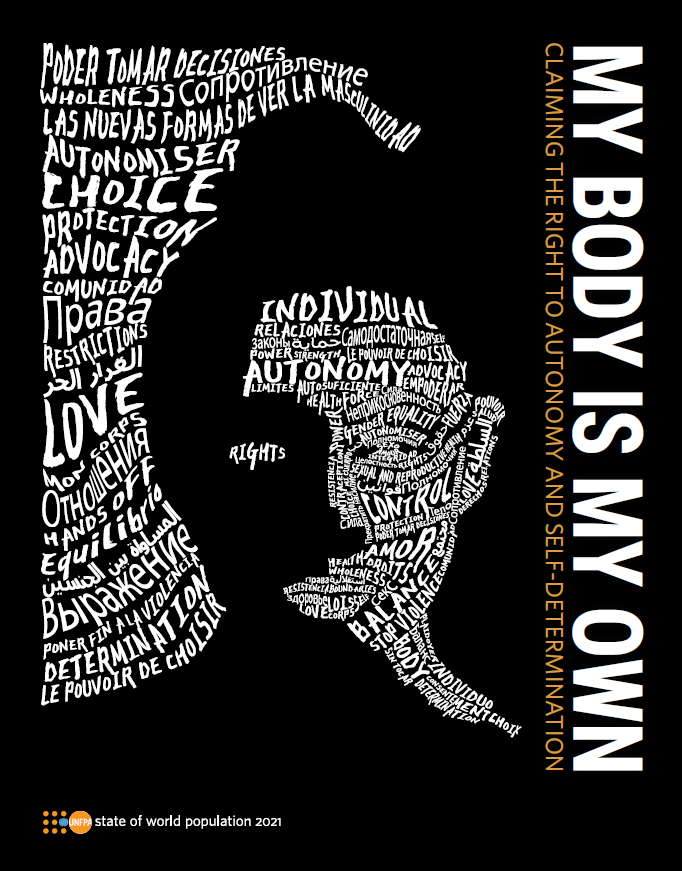2021 State of World Population
Analysis of evidentiary value
State of the World Population is the United Nations Population Fund (UNFPA)’s flagship report. UNFPA is the UN’s main sexual and reproductive health agency operating in over 150 countries. It is one of four specialised agencies overseen by the UN Secretary-General, head of the UN system, and its board is composed of representatives of 36 Member States. The agency also has strategic partnerships with 138 universities around the world. UNFPA’s reports often take a human rights approach; among the recipients of its reports is the Office of the High Commissioner for Human Rights.
UNFPA’s Executive Director at the time of this report’s release–Dr. Natalia Kanem–concurrently served as the UN Under-Secretary-General, the third-highest position in the UN system.
The theme of the 2021 State of World Population Report is “My Body is my Own: Claiming the Right to Autonomy and Self-Determination.” Its data were drawn from the UN Department of Economic and Social Affairs, the United Nations Educational, Scientific and Cultural Organization and the World Health Organization.
Used as precedent
reproductive rights
“When women and adolescent girls have more choice in sexual and reproductive health care, multiple positive health outcomes result, including greater understanding of how to prevent HIV, and a greater likelihood of having the number of prenatal visits recommended by the World Health Organization as well as giving birth with the help of a doctor, nurse or midwife.” (p. 10)
bodily autonomy and integrity
“Failures to uphold bodily autonomy thus result first and foremost in profound losses for individual women and girls. But they also add up to broader deficits, potentially depressing economic productivity, undercutting valuable skills, and imposing extra costs for health-care and judicial services, including for responding to violence against women and girls.” (p. 10)
comprehensive sexuality education
“Opponents of comprehensive sexuality education often contend that it promotes sexual activity, yet studies show that this is incorrect. Rather, evidence indicates that this education, when provided to international standards, improves young people’s knowledge and constitutes a crucial and cost-effective strategy for preventing unintended pregnancy and sexually transmitted infections, including HIV. Some studies show it may actually help delay adolescents’ sexual debut.” (p. 12)
sexual rights
“Widow inheritance, for example, requires a woman to engage in sexual relations with the man who “inherits” her, regardless of how many sexual partners he may have had in the past, increasing the risk of HIV transmission.” (p. 38)
intersectionality
“Women experiencing abuse in marriage are one-and-a-half to three times more likely to test positive for HIV and two to four times more likely to report another sexually transmitted infection.” (p. 48)
negative legal determinants
“A recent report pointed out that punitive legal environments, combined with stigma, discrimination and high levels of violence, placed gay men and other men who have sex with men at high risk of HIV infection because they are driven underground out of fear of prosecution or other negative consequences. As a result, they do not receive appropriate health education, and are reluctant to seek health-care services, testing and treatment.” (p. 64–65)
“For example, where people’s identities or professions might be criminalized, such as transgender people or sex workers, stigma and discrimination in health facilities is often known to be high, acting as a barrier to access to services that can play a role in protecting bodily autonomy.” (p. 107)
